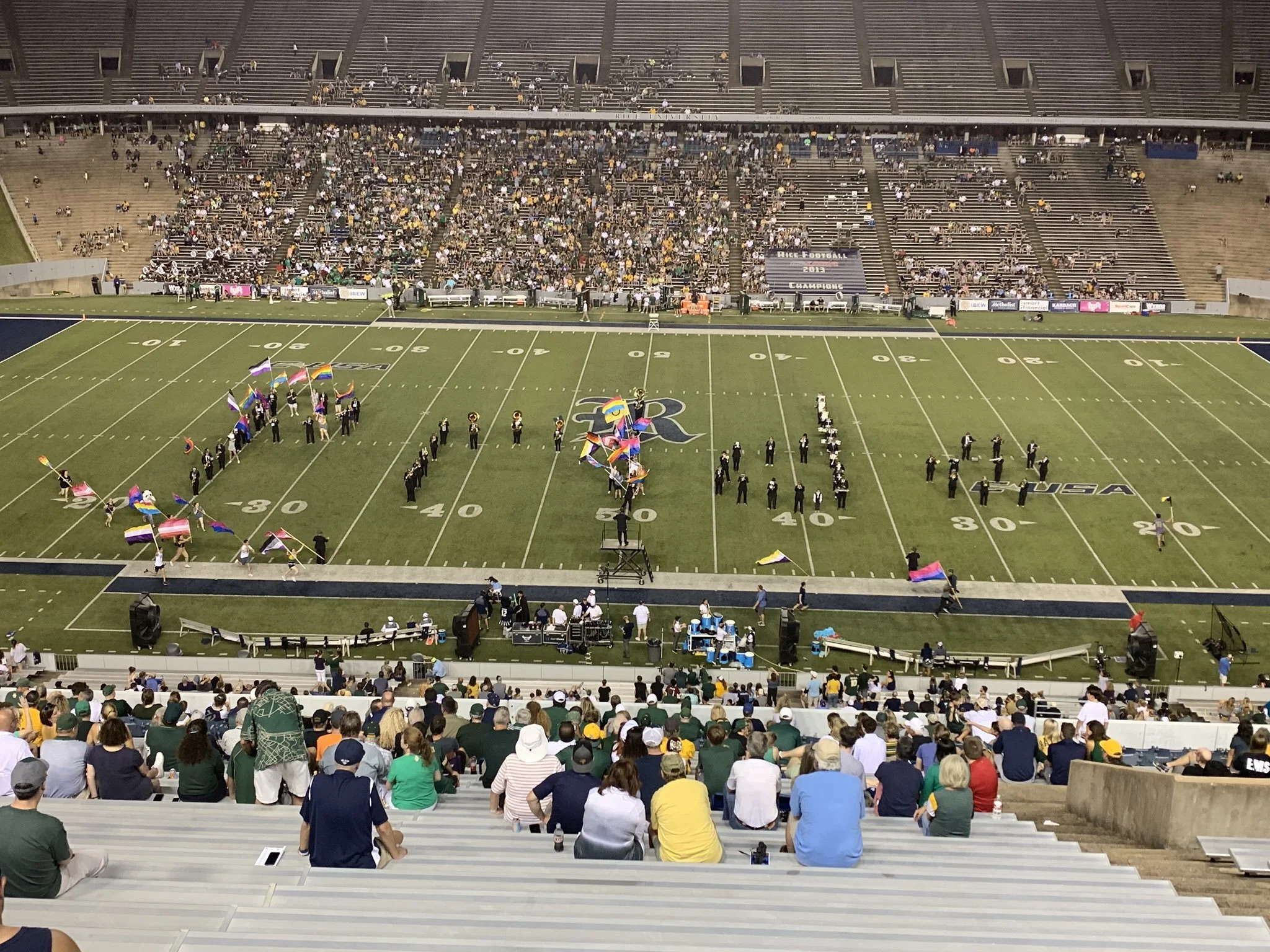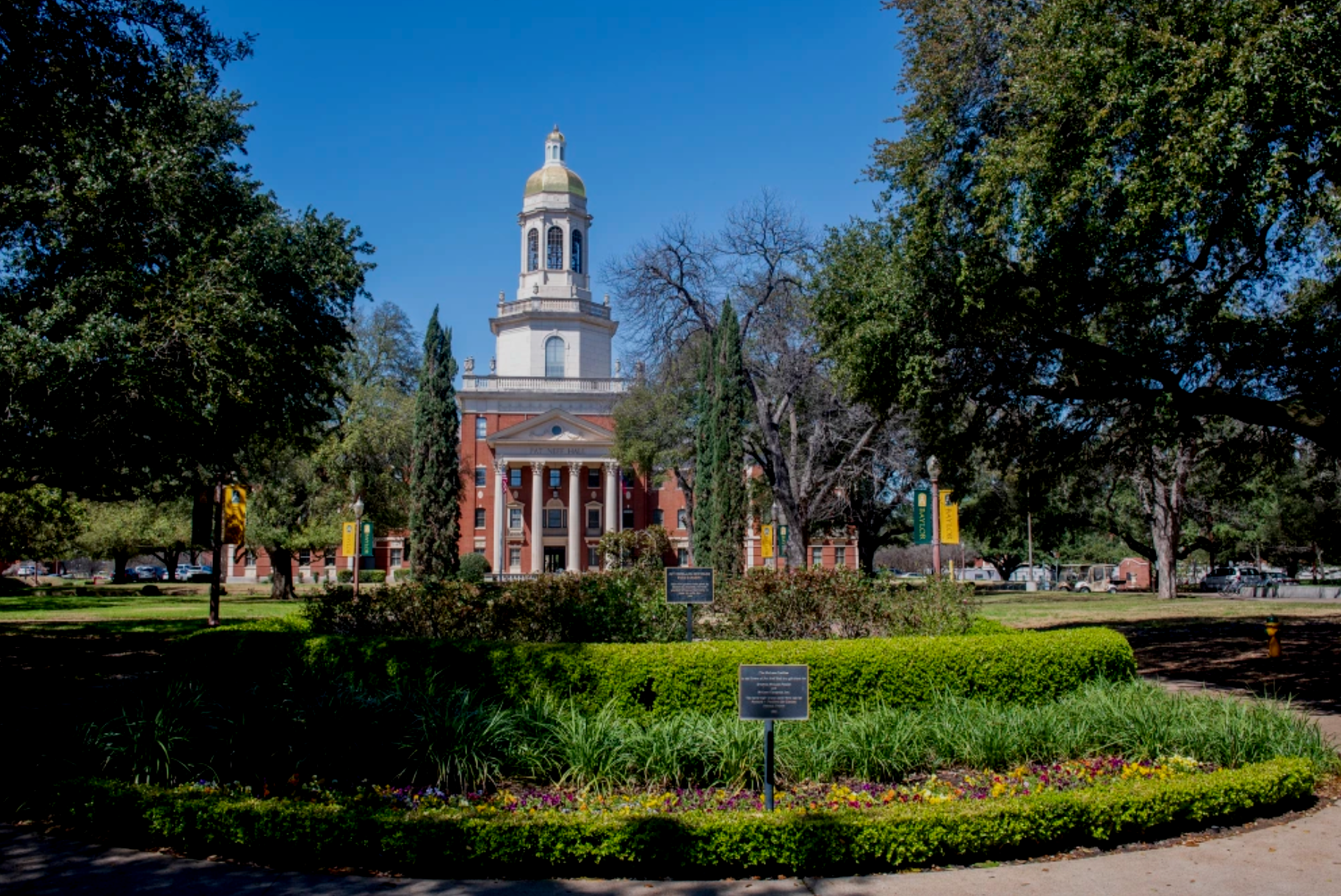For years, students say they’ve faced harassment for their sexuality. At the very least, they want their club for LGBTQ students to have official status on campus.
The Nation | Mary Retta | December 2, 2019
One night in 2018, senior Kyle Deserosiers was walking across campus with his boyfriend. They were holding hands. Another student, seeing them, turned and yelled, “Faggot!”
It was hardly the first time Deserosiers was ridiculed for his sexuality at Baylor University, a private Christian university in Waco, Texas. Administrators, students, and even professors, he said, have made lewd comments and jokes about queer and trans people in front of him, both in and outside of class, during his four years at the school.
Students have gone further to say that this kind of discrimination against the LGBT community is built into the very foundation of the university. Until 2015, same-sex displays of affection were a violation of the student handbook and considered a punishable offense. All residence halls are separated by binary gender. Many students, including Deserosiers, have heard rumors that the school has accepted sponsorships from homophobic companies that support conversion therapy. Students like Desrosiers feel that the school operates in a way that only recognizes the humanity of the cisgender and heterosexual student body. “I have had experiences that make me feel like I don’t belong here, like I’m an outsider, and that this is not the community for me,” Deserosiers said. “This discrimination needs to be investigated.”
One frustrating aspect of this has been that since 2011, the university’s administration has refused to officially recognize Gamma Alpha Upsilon, the school’s unofficial LGBTQ club. According to Anna Conner, a senior at Baylor and the vice president of Gamma Alpha Upsilon, the organization applies every year to be officially chartered; each year, it is rejected. Official recognition would grant the group funding and the ability to officially rent out spaces or bring speakers to campus, among other privileges. “They’ll tell us that something is wrong with the application, or that the organization doesn’t coincide with the student code of conduct,” Conner said. “We’ve reached out to the regents and various faculty and administration, but we haven’t had any luck meeting with anyone about it.”
In July, the club leadership board contacted the Big 12 Conference and the NCAA, asking them to examine the university’s discriminatory policies. As Baylor consistently ranks as one of the top schools in the conference, students believed this would be the best way to garner a large audience for the issues they were facing on campus. The students argued that Baylor’s treatment of LGBTQ students is not compliant with Title IX laws, and that other universities in the Power 5 Athletic Conferences have better resources, protections, and spaces for queer students on campus.
“We write to you as current LGBTQ+ and allied Baylor University students and recent graduates who have been engaged in efforts to ensure that Baylor University’s campus is safe, secure, and hospitable to LGBTQ+ students,” wrote the students. “Having appealed to Baylor University’s leadership on multiple occasions only to still be faced with an unfair, unsafe, and discriminatory campus environment, we now see no other option than to appeal to the broader community of which Baylor is a part, including its athletic association.”
In response, Conner and Hayden Evans, another leader of Gamma Alpha Upsilon, received a letter saying that while the Big 12 stood in solidarity with the club, there was little that representatives from the conference could do to help.
On paper, Baylor’s Title IX mandate reads that the university “does not tolerate discrimination or harassment on the basis of sex or gender,” defining gender-based harassment as “harassment based on gender, sexual orientation, gender identity, or gender expression.” According to Lori Fogelman, assistant vice president of media and public relations at Baylor, the university works to maintain those standards. “Baylor is committed to providing a loving and caring community for all students, including those who identify as LGBTQ,” she said. “Baylor is fully compliant with Title IX in its approach to LGBTQ issues.”
Students, however, say that the school’s actions toward the members of Gamma Alpha Upsilon signal otherwise. In August, Desrosiers penned an op-ed on the subject for the local newspaper, the Waco Tribune-Herald. “Besides enduring overt harassment and fearing violence, LGBTQ students at Baylor face second-class citizen status as a result of the university policies prohibiting us from forming student organizations and being fully recognized in the campus community,” he wrote. “While some who discriminate against LGBTQ people may seek to justify their discrimination through reference to religious belief, Baylor tellingly has not in recent years sought a religious exemption to the nation’s civil rights laws.”
According to Conner, Baylor administrators have told members of Gamma Alpha Upsilon that because the organization is “not biblical,” it is not in line with the university’s mission. Yet several students have argued that other nonreligious campus groups—such as the Campus Democrats and Campus Republicans—have gained official status from the university.
Religious universities like Baylor are allowed to claim exemption from Title IX regulations if they believe that following Title IX would violate their religious beliefs, a policy that many have found can encourage discrimination against the LGBTQ community. However, as a member of the Big 12 Athletic Conference, Baylor is unable to claim these exemptions. (In 2017, the Trump administration rescinded guidelines that allowed Title IX to apply to discrimination based on “gender identity”—that is, against transgender students.)
According to Conner, however, the university has found other ways to discriminate against queer students, such as upholding traditional heterosexual and cisgendered views of marriage in its human sexuality statement, a part of the campus’s sexual conduct policy. “The University affirms the biblical understanding of sexuality as a gift from God,” it reads. “It is thus expected that Baylor students will not participate in advocacy groups which promote understandings of sexuality that are contrary to biblical teaching.”
Conner’s response: “We are not an advocacy group, and we work very hard to not be considered an advocacy group, but the university still says that we are,” she said on behalf of Gamma Alpha Upsilon. “That way they don’t have to deal with us.”
This is not the only recent incident of Baylor’s attitude toward its queer students. In July 2019, after members of Gamma Alpha Upsilon and progressive Baylor alumni pushed for the university to bring in a speaker to discuss LGBTQ issues to alleviate tensions between queer students and the administration, the university chose to bring in Dr. Janet Dean, who had previously spoken at the college in February. She was asked to perform LGBTQ competency training for the board of regents.
Dean is the author of Listening to Sexual Minorities, a book that discusses three frameworks for how to treat queer students at Christian universities: an “integrity” model that focuses on changing sexual orientation; a “disability” model that treats LGBTQ identities as a health condition; and a “diversity” framework that emphasizes the importance of integrating queer youth into heteronormative society. Although the book does not directly mention conversion therapy, it does make repeated references to “healing” queer sexual orientation through prayer.
After word of this private meeting spread to the student body, Desrosiers sent a six-page letter to the Baylor chairwoman and the Board of Regents arguing that the university chose the wrong person to conduct the training and that her thoughts would contribute to the emotional and spiritual trauma of queer students at Baylor. “I got a response from the chairwoman saying she received my letter and would take it into consideration alongside other perspectives,” Desrosiers recalls. However, that week the university published a press release congratulating the board members for completing Title IX and NCAA sensitivity training. “This reflects the Board’s personal commitment to strengthening the University’s culture of compliance as we continue to do the right thing,” Chair Clements said in the press release.
Similarly, Baylor faced backlash last spring after an on-campus organization, Baylor Young Americans For Freedom—one of the four chartered conservative groups on campus—brought Matt Walsh, a conservative columnist for The Daily Wire, to speak on campus in April. In the weeks leading up to the lecture, a petition was created in opposition of Walsh’s presence on campus that received almost 3,000 signatures from Baylor students, faculty, and alumni. Although the petition did not stop Walsh from speaking at Baylor, this mobilization encouraged members of Gamma Alpha Upsilon to set up a meeting with the university’s board of regents to discuss the organization’s approval. The students quickly received a response from the school saying that as a private institution, Baylor “does not allow outside groups” to address the regents.
“We are literally students at the university,” said Jazz Aurora, a black transgender senior at Baylor who uses they and she pronouns. “We should not be considered an outside organization. That was the moment when we all sort of realized, ‘Oh, they are really not hearing us.’”
“Students have said hateful things about the queer community to my face, and I’ve been harassed while out with my boyfriend on campus,” Desrosiers said. “But I also think it’s important to recognize that there are students of color and transgender and gender nonconforming students who cannot ‘pass’ the way I can, and who have faced experiences that completely erase their humanity at Baylor.”
“Baylor has its own issues with race,” Aurora confirmed. “Being queer and a person of color at Baylor, it’s really hard to find people to connect with or relate to. A lot of times I find myself on the outside of both groups.”
Despite resistance from the university, members of Gamma Alpha Upsilon continue to fight for the club’s official status on campus. The organization applied once more for official status in March and is currently waiting on a response from the school, which can take up to 200 days. Members of Gamma Alpha Upsilon are also continuing to petition and organize, and have recently met with a lawyer to discuss their rights in the matter.
According to Aurora, even if Gamma Alpha Upsilon were to become officially chartered, there is still much work to be done in order for LGBTQ students to feel safe on campus. “We need sensitivity training,” they said. “I’m so tired of having to clarify that I’m transgender and have professors misgender me. If you’re the person at the front of the classroom, I would really appreciate it if you could address me in a way that doesn’t make me super uncomfortable.”
Gaining acceptance for Gamma Alpha Upsilon has been a struggle for almost a decade now, but students are determined to keep fighting. “Recognition would just mean that we exist,” Conner said. “It’s taken a long time for Baylor to recognize that LGBTQ students exist on campus. For them to say that it’s OK for us to be here and that there is a space for us to meet openly—that’s really all we’re looking for.”


















